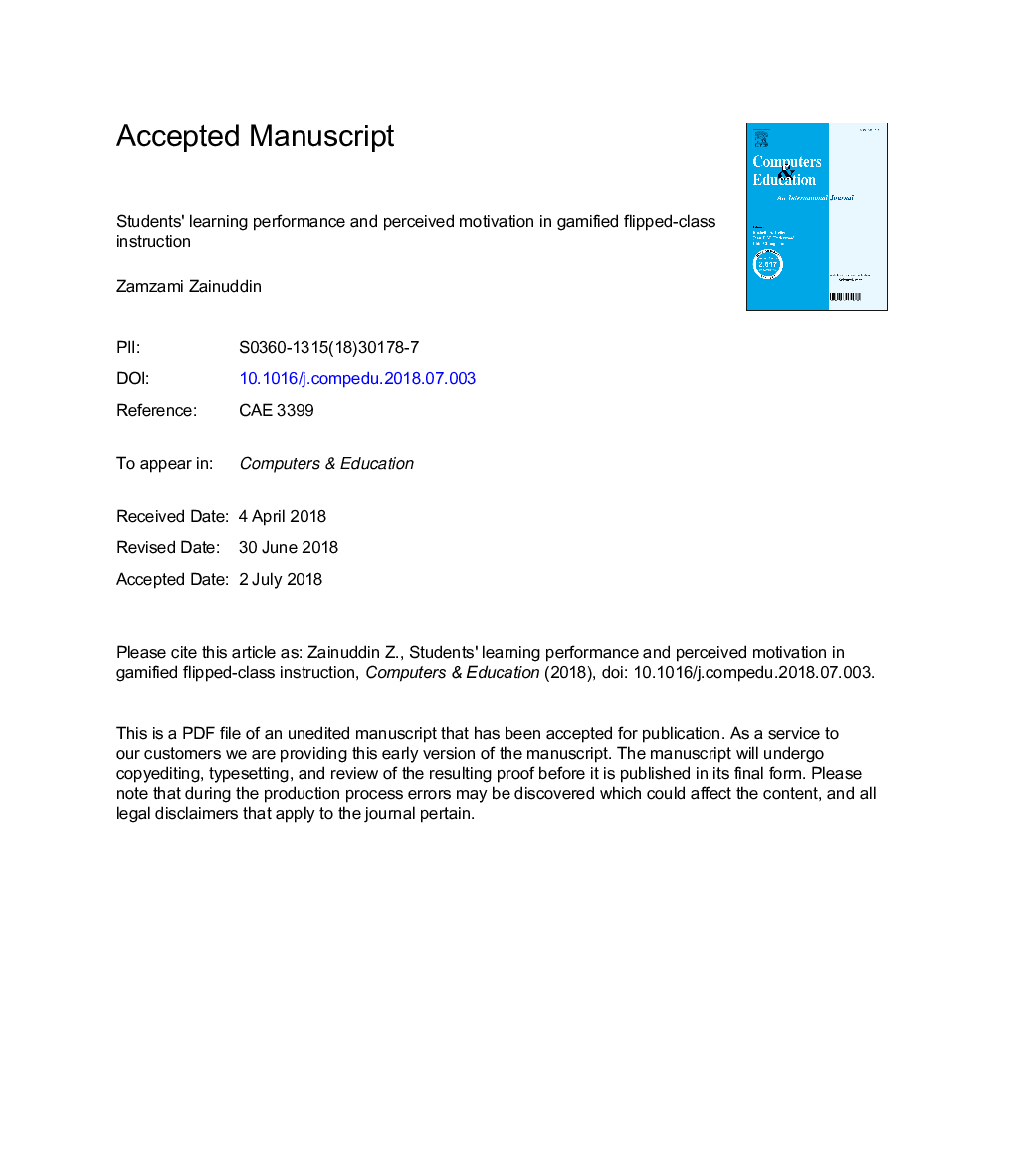| کد مقاله | کد نشریه | سال انتشار | مقاله انگلیسی | نسخه تمام متن |
|---|---|---|---|---|
| 6834540 | 1434522 | 2018 | 25 صفحه PDF | دانلود رایگان |
عنوان انگلیسی مقاله ISI
Students' learning performance and perceived motivation in gamified flipped-class instruction
ترجمه فارسی عنوان
عملکرد یادگیری دانش آموزان و انگیزه درک شده در کلاس آموزش مقدماتی تولید شده
دانلود مقاله + سفارش ترجمه
دانلود مقاله ISI انگلیسی
رایگان برای ایرانیان
کلمات کلیدی
نظریه خودمختاری، تولید کلاس لغزنده، طبقه بندی شده طبقه بندی شده فلیپ شده، انگیزه درک، عملکرد آموزشی،
موضوعات مرتبط
علوم انسانی و اجتماعی
علوم اجتماعی
آموزش
چکیده انگلیسی
This is a pilot study aimed at examining students' learning performance and perceived motivation between a gamified flipped classroom and a non-gamified flipped classroom instructional model, based on the Self-Determination Theory (SDT). This study employed a mixed-method research approach, using three formative assessments or a post-test only design to examine students' learning achievement. Questionnaires and personal interviews were employed to support the data collection process in terms of students' perceived motivation. Fifty-six students were the respondents involved in a non-randomized experiment with a control group design. The results reveal that assessment 1 showed no significant difference between the two groups of the gamified flipped and non-gamified flipped classroom instruction (tâ¯=â¯1.68, p.474), while assessment 2 and 3 were significantly different (tâ¯=â¯5.54, p = .007â¯<â¯.05) and (tâ¯=â¯10.17, p = .001â¯<â¯.05). In the present study, the findings confirm that the students were positive regarding perceived competence, autonomy, and relatedness, better performance, and were able to achieve good achievement during the tests. The survey results reveal that the gamified flip-class setting fostered better motivation and engagement. Particularly, students motivated to compete and beat other students during the gamification activities by collecting points and badges as many as possible. Four main themes emerged from the qualitative interviews, namely, (1) pre-class learning motivation, (2) pre-class competition, (3) students' learning autonomy, and (4) students' social engagement. Conclusions from this study showed that the gamified flip-class setting had successfully constructed the basic psychological needs of SDT, namely: competency, autonomy, and relatedness.
ناشر
Database: Elsevier - ScienceDirect (ساینس دایرکت)
Journal: Computers & Education - Volume 126, November 2018, Pages 75-88
Journal: Computers & Education - Volume 126, November 2018, Pages 75-88
نویسندگان
Zamzami Zainuddin,
